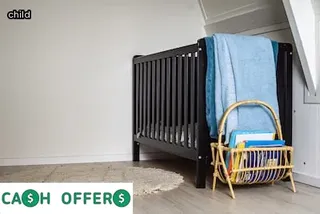The probate process in South Dakota is a legal procedure used to settle an estate when a house is sold. It involves the distribution of property and assets to beneficiaries, as well as paying off any debts associated with the estate.
This can take anywhere from months to years, depending on the size and complexity of the estate. During this time, the court will appoint an executor or administrator who is responsible for managing the settlement of the estate.
This includes identifying heirs and beneficiaries, gathering relevant documents, filling out paperwork and submitting it to court for approval, notifying creditors and debtors, collecting payments related to debts or claims against the estate, liquidating assets if necessary to pay creditors, filing tax returns, distributing assets according to the will or other applicable laws, and closing out accounts associated with the deceased person’s name. The probate process can be lengthy and complex but is necessary in order to ensure that all parties receive their due share of property or assets from an estate after someone passes away.

In South Dakota, an executor of a will is the individual responsible for carrying out the wishes of the deceased. This can be anyone the deceased appointed in their will, or if none was named, someone designated by a court.
Usually this is a close relative or friend who has been given power of attorney. The executor must not only properly settle the estate but also manage any assets and debts.
They are required to gather all property owned by the decedent and safekeep it until it’s settled. Executors also have to identify and notify creditors and pay off any outstanding debts before distributing money and assets to beneficiaries.
It's important that an executor in South Dakota understands their role as they are legally obligated to act on behalf of the deceased’s estate according to state law.
The duties of an executor in South Dakota are varied and complex. It is the executor's responsibility to manage the estate of a deceased person, including distributing assets and settling debts.
In particular, when it comes to selling a house after the death of the owner, there are certain tasks that must be completed prior to closing on the sale. The executor must file a petition for probate with the court, obtain appraisals of any real property, prepare documents related to a sale, collect any income due to the estate from tenants or other sources, and disburse funds from the sale according to state law.
When all these steps are complete, it generally takes 3-6 months for an estate to be settled after a house is sold in South Dakota. Additionally, an executor must ensure that all final tax returns are filed and paid before closing on the sale.
With careful planning and diligent attention to detail, an executor can help ensure that the estate is settled quickly and efficiently following a home sale in South Dakota.

In South Dakota, the probate process can take between six months and two years to settle an estate after a house is sold. Beneficiaries typically receive their assets after the debts of the estate have been paid and all interests in the property have been transferred.
The court will appoint an executor, who is responsible for filing the necessary paperwork and gathering any assets from the deceased. The executor will also be responsible for selling or transferring any real estate that was owned by the deceased.
Once all of these tasks have been completed, beneficiaries will receive their share of any remaining assets according to state law. In some cases, probate may be avoided if there is a valid will in place or if the estate does not exceed certain thresholds set by law.
However, it is important to work with experienced legal professionals to ensure that all requirements are met so that beneficiaries can receive their inheritance as quickly as possible.
In South Dakota, probate is necessary for all types of property when an individual passes away. This includes real estate, such as a home or other piece of land, personal items like vehicles and furniture, as well as financial accounts like stocks and bonds.
Probate may also be needed for any assets that the deceased held in joint tenancy with another party. In order to settle an estate after a house is sold in South Dakota, the court must first go through the probate process to determine who is legally entitled to receive the proceeds from the sale.
This process can take some time depending on how complicated the estate is and how quickly the courts can process it - generally anywhere from 6 months to more than a year. As part of this process, all debts related to the estate must be paid off before any remaining money is distributed among heirs according to state law.

When a house is sold in South Dakota, the process of settling an estate can take a while. But, there are alternatives to going through probate that may expedite this process.
One such option is to create a revocable living trust. This type of trust allows the deceased's wishes to be carried out quickly and efficiently without involving the court system.
Additionally, South Dakota law allows for transfer on death deeds that allow for houses to pass directly from one person to another without being subject to probate. This type of deed allows for quick and private transfers of real estate that do not require a lot of paperwork or court proceedings.
Finally, if all the heirs are in agreement, they can also choose to go through an informal administration process which does not need court approval and is much faster than traditional probate proceedings. All these options provide alternatives to going through probate when settling an estate after a house is sold in South Dakota.
When a house is sold in South Dakota, the sale of the estate can take anywhere from several months to multiple years depending on various factors. One factor that can affect the length of time it takes to settle an estate is whether or not a trust was set up prior to the death of the homeowner.
If a trust has been established, this can help avoid probate in South Dakota and speed up the process of settling the estate. This is because a trust allows for assets to be transferred quickly without having to go through probate court.
The executor of the estate will still have to go through some paperwork and legal procedures but they won't need to wait for a judge's approval which is often necessary when going through probate court. Additionally, if there are no disputes regarding the estate, it could help move things along faster as well.
Ultimately, setting up a trust ahead of time can help make settling an estate much faster and easier after a house has been sold in South Dakota.

Opening an estate account in South Dakota is an important part of settling an estate after a house is sold. The process can be complex and time-consuming, depending on the size and nature of the estate.
In order to open an estate account in South Dakota, you must first obtain letters of administration or probate from the local court. After being granted authority by the court, it is necessary to collect all assets that were owned by the deceased person before they passed away.
This may include financial accounts, real property, investments, and personal possessions. All assets must then be inventoried and appraised in order to accurately value them for tax purposes.
Once this has been completed, the executor will need to acquire a Tax Identification Number (TIN) for their estate account from the Internal Revenue Service (IRS). After opening an estate account with a bank or credit union, taxes must be paid on any income generated by assets within the estate before distributing them according to instructions laid out in the deceased person's will.
The amount of time required to settle an estate after a house is sold in South Dakota depends on numerous factors such as how many assets are involved and how quickly paperwork can be filed with the court system.
When an estate in South Dakota is sold, it can take some time to settle the estate. However, if there are debts or taxes owed after the house has been sold, this could delay the process further.
It's important for any executor of an estate to be aware of any financial obligations that are due before the estate can be settled. If there are any unpaid debts or taxes, it may be necessary to use funds from the sale of the house to pay these off before settling the estate.
In addition, it's important to know what kind of taxes may need to be paid when selling a house in South Dakota and how these can affect the settlement process. The executor should also make sure that all applicable fees and taxes have been paid before closing on a sale, as this will ensure that everything goes smoothly and quickly when settling an estate in South Dakota.

In South Dakota, an executor of a will is required to post a bond prior to settling the estate. This bond acts as a financial guarantee that the executor will fulfill their legal obligations and pay all debts and taxes associated with the estate before any remaining assets are distributed.
The amount of the bond is determined by the court and is usually based on the size of the estate, though it cannot exceed $50,000. It must be obtained from an approved surety company or insurance company; however, in some circumstances, such as when there is only one heir, that heir may waive the requirement for a bond.
The length of time it takes to settle an estate after a house has been sold in South Dakota can vary depending on how quickly paperwork is filed and how complicated the process is.
In South Dakota, probate is waived if the estate is settled within a certain timeframe after the house is sold. Generally, this process takes anywhere between four to eight weeks but can vary depending on a number of factors.
An estate will be considered ‘closed’ when all debts and taxes have been paid, any assets distributed among heirs, and all court requirements are met. The executor of the will must file an inventory of the estate with the court and provide proof that creditors were notified before the estate can be closed.
The executor also needs to ensure that all outstanding taxes are paid before any assets are distributed, which may delay the settlement process further. Once these steps have been completed, probate is typically waived in South Dakota and no additional action must be taken by the executor or heirs.

In South Dakota, the answer to how long it takes to settle an estate after a house is sold is dependent on whether or not the assets are being transferred outside of probate. If assets are transferred outside of probate, the process can be significantly faster because it reduces the number of steps and paperwork required for the transfer.
South Dakota has laws in place that enable beneficiaries to receive their inheritance quickly and easily through non-probate transfers like transfer-on-death deeds and payable-on-death accounts. Additionally, many states have simplified procedures in place making it easier than ever to make sure that property is passed on to heirs without going through the lengthy probate court process.
It's important to note that although there are benefits associated with transferring assets outside of probate in South Dakota, there may still be some costs involved as well as potential tax implications for those receiving the asset transfer.
When it comes to settling an estate in South Dakota, the executor of the estate is typically notified of their appointment shortly after the house is sold. According to South Dakota's probate code, a notice of appointment must be sent to the executor by mail or delivered in person within 30 days of their acceptance.
The notification should include information regarding their responsibility as executor, such as collecting assets, paying debts and taxes, and distributing remaining assets to beneficiaries. Once appointed, the executor has six months from the date of appointment to file any necessary documents with the court.
During this time period, they are also responsible for notifying anyone who may have an interest in the estate about its settlement proceedings. Ultimately, it can take anywhere from a few months to a year for an estate to be settled in South Dakota depending on its complexity.

In South Dakota, the probate process is used to settle an estate after a house is sold. During this process, someone can challenge a will if they have reason to believe that it was not properly executed or is fraudulent.
Challenges may also be made if there is evidence of undue influence or other forms of coercion when the will was drafted. In addition, if the testator (the person who wrote the will) lacked legal capacity to create the document at the time of its drafting, a challenge can be made in court.
The burden of proof lies with the challenger; they must provide enough evidence for a judge to find that the will should be voided. If successful, this may result in any property being distributed according to state intestacy laws instead.
It's important to note that South Dakota has statutes of limitations on challenging a will which must be adhered to in order for a case to proceed in court.
When a house is sold in South Dakota and an estate must be settled, surviving spouses may be entitled to an inheritance without a will or trust. South Dakota law assigns certain rights to married couples and their children for the division of assets after one spouse passes away.
In general, a surviving spouse has the right to claim up to two-thirds of the decedent’s estate unless it is specified differently in the decedent’s will. Even if there is no will or trust present, South Dakota has laws in place that protect the surviving spouse’s right to inherit from his or her deceased partner.
If there are children involved, they may also be entitled to some portion of the inherited property as well. Any disputes over who should receive what portion of an estate should be handled by legal counsel, as state laws can vary greatly on these matters.

In South Dakota, the probate process can be a lengthy one. Financial institutions may refuse to release funds during the probate process, leading to delays in settling an estate after a house is sold.
To file for probate in South Dakota, you will need certain documents such as a death certificate and proof of ownership of the property. After all assets have been liquidated and property has been sold, there are steps that need to be taken to finalize the estate.
These include filing taxes for the estate and paying any outstanding debts or liabilities. There are also requirements for closing an estate and distributing assets among beneficiaries, including providing evidence of title transfer and filing additional paperwork with the court.
It is important to understand these processes before attempting to settle an estate in South Dakota.
In South Dakota, settling an estate after a house is sold can be a complex and time consuming process. Depending on the complexity of the estate, it may take anywhere from several months to years to settle.
Estates with multiple heirs or complicated legal issues may require more time to settle than other estates. It is important to contact an experienced estate attorney in order to ensure the process goes as smoothly as possible and that all legal requirements are met.
The estate attorney will be able to provide insight into how long you can expect the process to take. Additionally, they will be able to provide guidance on any paperwork and filing requirements necessary for settling the estate in South Dakota.
Although every situation is unique, taking all of these steps into account will help you determine how long you have to settle an estate in South Dakota.

Most estates take an average of 6-12 months to settle after a house is sold in South Dakota. From the time the estate is opened, the attorney will collect all assets, pay off any debts and taxes, and then distribute any remaining assets to the beneficiaries.
During this process, creditors must be notified and allowed a certain amount of time to make claims against the estate. The court also reviews documents to ensure accuracy and compliance with state laws.
Depending on the size of the estate, this process may take several months or longer. After everything is settled and finalized, the attorney will transfer title of all remaining property to its rightful owners.
In South Dakota, all estates worth more than $100,000 must go through the probate process.
This process involves taking an inventory of the estate's assets and distributing them to the heirs or beneficiaries according to state law.
The amount of time it takes to settle an estate can vary depending on how complicated the estate is and how quickly paperwork is completed.
Estate attorneys are available to help with the legalities involved in settling an estate after a house has been sold and often have local experience with understanding South Dakota's probate laws.
In South Dakota, the inheritance laws related to the sale of a house and settling an estate are complex. The state has a mix of laws that regulate the distribution of assets among heirs and beneficiaries.
Under South Dakota law, when someone passes away they must leave behind a valid will or probate court determines how their estate is distributed. When it comes to real property such as houses, the owner's will may provide instructions for the sale of the home and how proceeds are divided amongst heirs.
However, if there is no will or if it does not address this issue, then South Dakota law requires that all property be sold at public auction with proceeds divided among heirs based on intestate succession rules. Depending on the size and complexity of an estate, it can take anywhere from several months to multiple years for an estate to be settled after a house is sold in South Dakota.
A: The legal process of settling an estate after a house sale in South Dakota can take anywhere from several weeks to several months depending on the complexity of the estate.